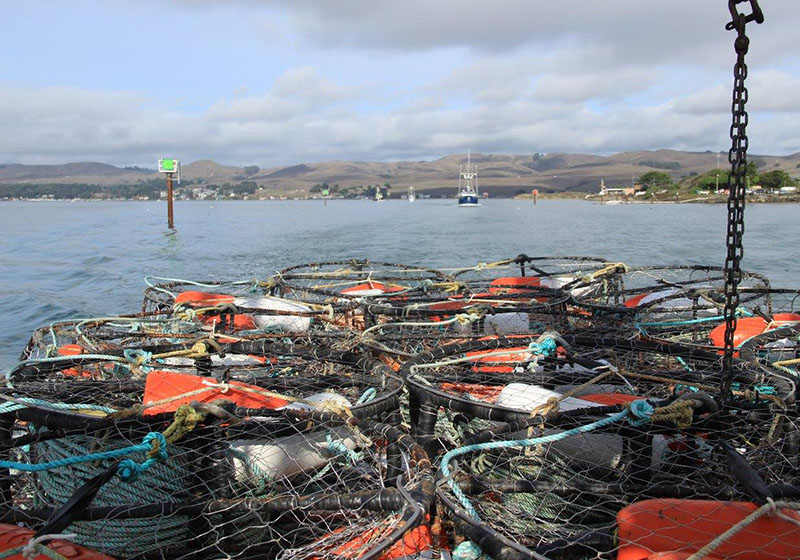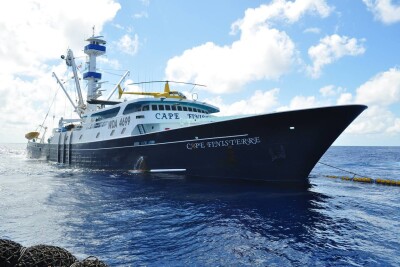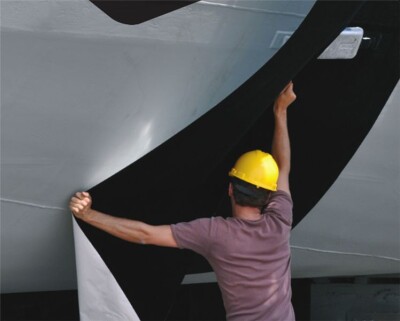Bodega Bay crabbers made an unprecedented decision to hold back from Friday’s scheduled Dungeness season opener, to avoid potential encounters with humpback whales gathered off the California coast.
The fishery was marred by gear entanglements in the 2015-2016 season, and tightened state oversight could severely curtail this season if there are new incidents. On Wednesday state officials were reaching out to other ports to see if they like Bodega Bay would hold off setting gear, until changing weather conditions might prompt whales to disperse.
The Bodega Bay Fishermen’s Association made the unanimous decision Tuesday even as crew had the boats prepared for the Nov. 22 start, which for some weeks had been up and down in doubt over state authorities’ concerns about marine mammals and testing for domoic acid.
The deciding factor was a surveillance flight Monday that sighted scores of endangered humpback whales feeding near Point Reyes and Half Moon Bay, said Dick Ogg, vice president of the Bodega Bay Fishermen’s Marketing Association and a 2019 National Fisherman Highliner.
A little over three weeks ago, “there were a lot of whales, they were spread out, the anchovies were spread out, they were all over the place,” said Ogg, who has been flying on those missions along with state Department of Fish and Wildlife officials.
On Monday, “the whole concentration was significant. It was animals feeding all up and down the areas where we will be fishing,” and Ogg counted 86 whales while a state observer tallied 84, he said.
The Bodega Bay association members – about 35 fishermen with vessels from 25 feet to 75 feet – met the next day and made a unanimous decision to delay setting gear.
One working theory is the whale concentration is a result of mild ocean conditions that have anchovies and whales much more concentrated than usual for November, Ogg said. By that reasoning, a delay could avoid conflicts until the next weather system comes through and changes conditions.
“The last thing we want is another situation like in 2015,” said Ogg. “We want to be fishing, we want to make money, and we also want to supply that product in the most organic, most sustainable way we can.”
Under tightened state rules the crab fishery could be limited or even shut down for the season if even a single entanglement occurs.
At Tuesday’s Bodega Bay association meeting, the feeling was “this is really a problem. We need to be in front of this,” Ogg said. “It’s in our best interest, to prolong the longevity of this fishery.”
Now the state wildlife agency is ready to launch more surveillance flights to monitor the whale movements “and the Coast Guard is willing to help us,” Ogg said at mid-day Wednesday.
Like other fishermen, “I’ve got $700 or $800 of bait sitting on the boat right now and I don’t care…if we can avoid this potential disaster,” Ogg said.







